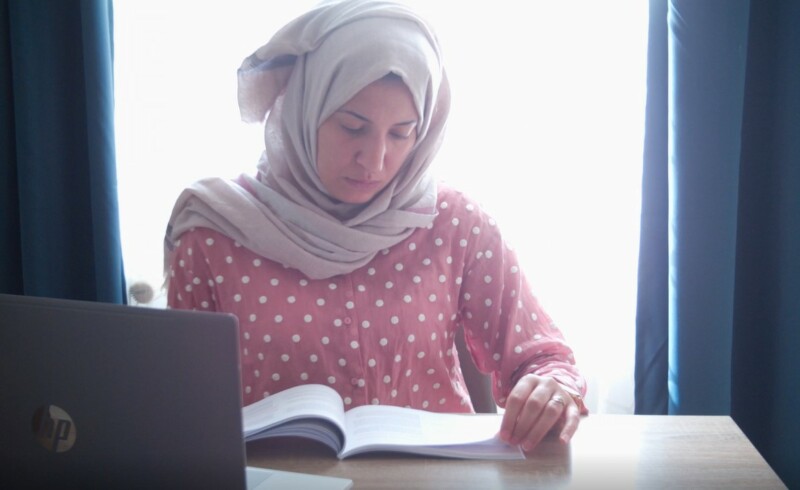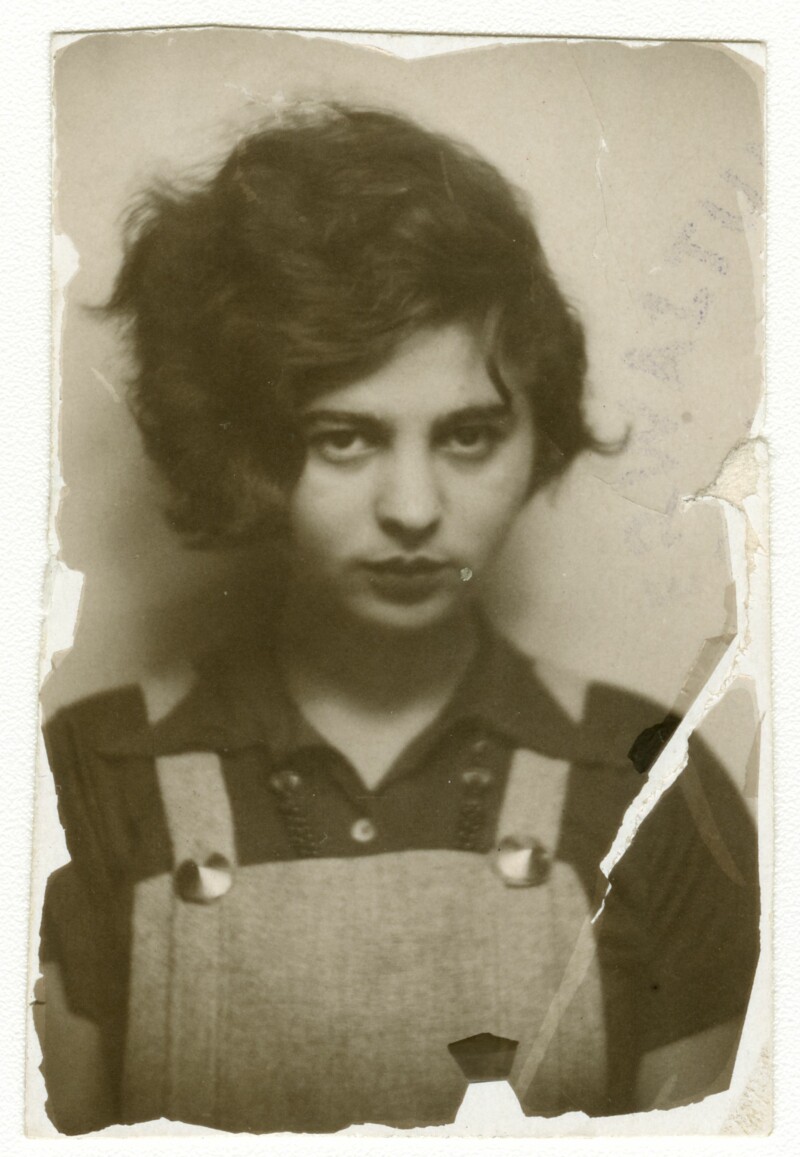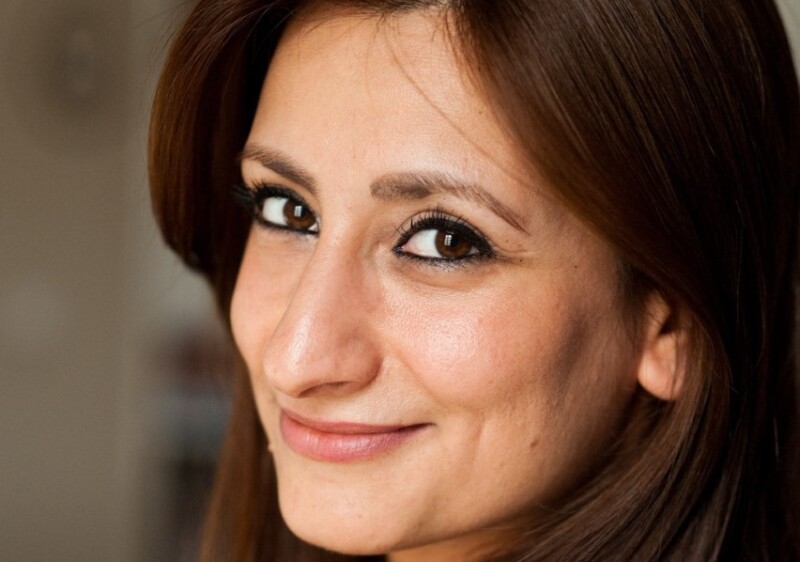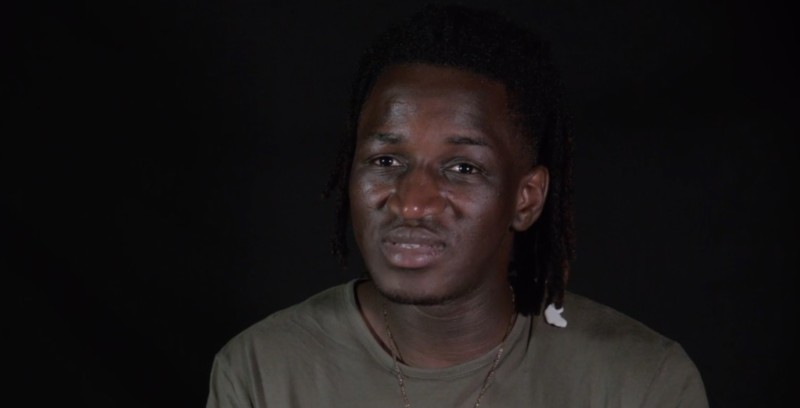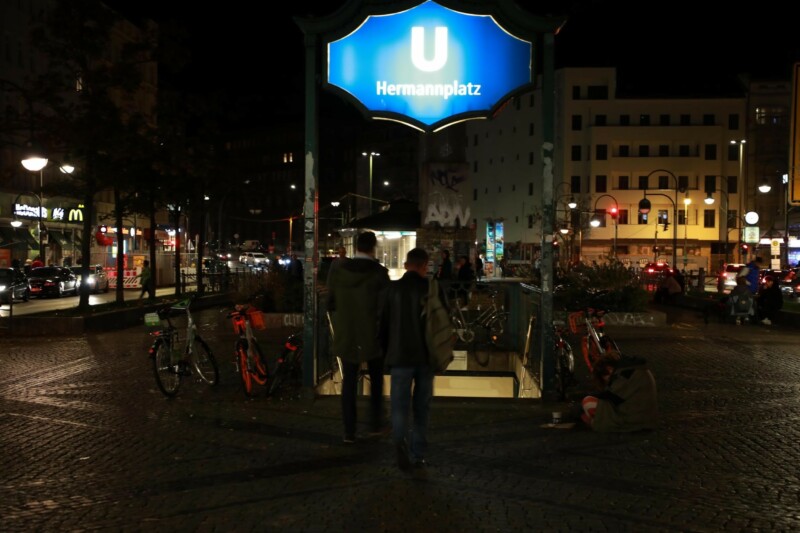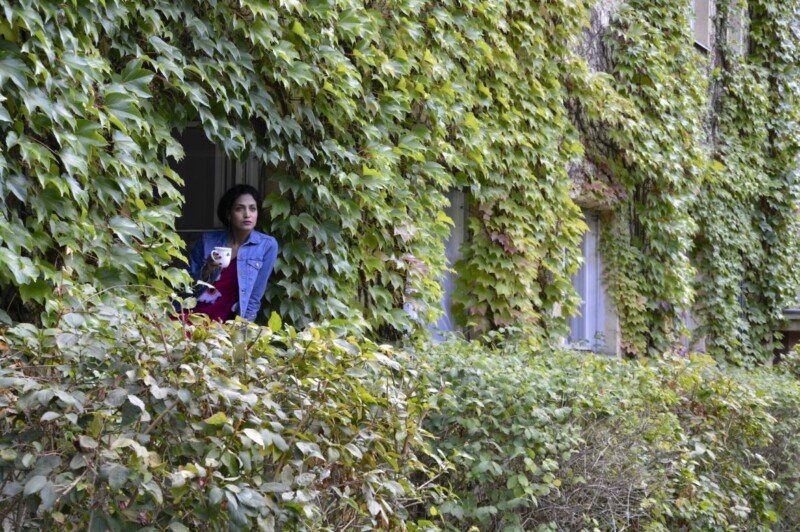 “Es ist kalt, und es regnet. Wie gewöhnlich habe ich eingekauft, trage schwere Taschen in meiner Hand und laufe nach Hause. Ich schließe die Haustür auf, betrete das Treppenhaus und schaue wie immer zuerst im Briefkasten nach Post. Es gibt nur ein paar Zeitschriften, Werbung und die Internetrechnung. Schnell steige ich die Treppen hoch in die Wohnung, ziehe meine Schuhe aus und gehe in die Küche, wo ich die Einkäufe abstelle. Dann eile ich ins Schlafzimmer, und ohne mich umzuziehen, lege ich mich aufs Bett. Was für ein gutes Gefühl, was für eine Stille und was für ein Frieden! Mein schönes Zuhause …
“Es ist kalt, und es regnet. Wie gewöhnlich habe ich eingekauft, trage schwere Taschen in meiner Hand und laufe nach Hause. Ich schließe die Haustür auf, betrete das Treppenhaus und schaue wie immer zuerst im Briefkasten nach Post. Es gibt nur ein paar Zeitschriften, Werbung und die Internetrechnung. Schnell steige ich die Treppen hoch in die Wohnung, ziehe meine Schuhe aus und gehe in die Küche, wo ich die Einkäufe abstelle. Dann eile ich ins Schlafzimmer, und ohne mich umzuziehen, lege ich mich aufs Bett. Was für ein gutes Gefühl, was für eine Stille und was für ein Frieden! Mein schönes Zuhause …
Aber dieser schöne Moment hält nicht lange an. Es klingelt. Ich öffne die Tür, und vor mir steht mein Nachbar, ein netter alter Mann, mit einem Glas Marmelade und einem Lächeln. Er sagt: ‘Das ist eine besondere Marmelade, welche ich selber gemacht habe’. Ich bedanke mich und nehme das Glas entgegen. Ich gehe in die Küche, um sie einzuräumen. Dann schnell zum Telefon, weil es klingelt.
Es ist meine Mutter. Ich freue mich, mit ihr reden zu können. Sie erzählt viel über alltägliche Dinge und über ihren Kummer. Ich kann wie immer fühlen, dass sie traurig ist. Ich versuche, mich fröhlich zu zeigen und so zu tun, als ob es mir gutgehen würde. Ich mache ein paar Witze, um sie zum Lachen zu bringen. Sie hat sich selbst nach zwei Jahren noch nicht daran gewöhnt, dass ich so weit weg bin und heult immer noch, wenn sie mich auf dem Handydisplay sieht. Ich gebe mir die Schuld daran und kann mir das niemals verzeihen. Aber ich hoffe, dass ich sie irgendwann einmal wieder umarmen kann. Mit diesem Gedanken tröste ich mich. Nach einer Stunde Gespräch verabschieden wir uns mit einem Herzen voller Traurigkeit.
Ich gehe in die Küche, mache mir einen Salat und setze mich vor den Fernseher. Aufmerksam versuche ich, die Nachrichten zu verfolgen. Auch die Nachrichten über Asylbewerber und die Themen, die mit Asyl zu tun haben. Jeden Tag gibt es ein neues, strengeres Gesetz für uns Asylanten. Jeden Tag ein neues Thema, und ich weiß nicht, wann diese Themen gelöst werden. Ich mache den Fernseher aus und gehe ins Bad. Aber unter der Dusche werde ich wieder von meinen Gedanken ertränkt. Diese verdammten Gedanken lassen mich nicht los. Als ich wieder zu mir finde, drehe ich den Wasserhahn zu, verlasse die Dusche, putze die Zähne und gehe ins Schlafzimmer. Wieder lege ich mich auf das Bett und starre die Glaskugeln an, die von der Decke herabhängen. So lasse ich den ganzen Tag, von morgens bis abends, Revue passieren. Ich plane für morgen, übermorgen und für die Zukunft. Was für ein gutes Gefühl es doch ist, einfach auf dem Bett zu liegen und meine Träume zu träumen. Es war für mich nicht leicht, dieses friedsame Gefühl zu erleben. Ich erinnere mich an alle schwierigen Tage, die ich erlebte. Die fünf Monate, in denen ich von morgens bis abends ein Zuhause suchte. Ich hatte täglich drei bis vier Wohnungen besichtigt, zusammen mit vielen anderen Menschen, die mit Unterlagen in der Hand ebenfalls auf der Suche nach einer Wohnung waren. Ich hatte sogar einen Wohnberechtigungsschein, aber das war lächerlich. Manchmal war ich hoffnungslos. Manchmal habe ich auch geweint. Dann habe ich mich aber getröstet und mir gesagt, dass diese schwierigen Tage bald zu Ende sein werden und es dann auch schöne Tage geben wird.
Nach vielen Bemühungen konnte ich dann endlich eine Wohnung finden, was an ein Wunder grenzte. Ich bekam aber leider nur für zwei Jahre einen Vertrag. Nun sind es noch sieben Monate, bis der Vertrag endet. Das heißt, dass der ganze Stress mit dem Hinund Herlaufen auf der Suche nach einem neuen Zuhause von vorne beginnt. Ich dachte immer, dass ich keine Probleme mehr hätte, wenn ich eine Wohnung gefunden habe. Ich wusste nicht, dass das erst der Anfang war, denn ich muss mich noch viel bemühen, um meine Ziele erreichen zu können. Aber jetzt liege ich auf meinem Bett und danke Gott, dass ich eine Unterkunft habe, wenn auch nur vorläufig. Wie immer habe ich noch etwas mit meinem Gott geredet. Meine Augen werden schwer. Ich ziehe die Decke bis zu den Augen hoch und schlafe in der Hoffnung auf einen schöneren Morgen ein.
Mit dem Klingeln des Weckers wache ich auf. Der Wecker zeigt sieben Uhr an. Es kommt mir vor, als ob ich erst vor einer Sekunde eingeschlafen bin. Ich verlasse schnell das Bett, wasche mein Gesicht und gehe in die Küche. Dort mache ich mir einen Kaffee und öffne das Fenster, obwohl es draußen wieder kalt ist. Ich atme tief ein und fühle den Sauerstoff. Ich genieße den Ausblick auf die Bäume, mit den farbigen Blättern. Ich trinke meinen Kaffee und schlucke mit ihm meinen Kummer herunter.”
Khatere Amiri, 2018
Zuerst veröffentlicht in der kulturTÜR, dem Magazin von und für Geflüchtete und ihre Nachbarn. Die kulturTÜR ist ein Projekt der DRK Berlin Südwest gGmbH und wird gefördert mit Mitteln des bezirklichen Integrationsfonds Steglitz-Zehlendorf. Der Integrationsfond ist eine Maßnahme des Gesamtkonzepts zur Integration und Partizipation Geflüchteter des Senats von Berlin.
“It’s cold and it’s raining. As usual, I did the shopping, carry heavy bags in my hand and walk home. I unlock the front door, enter the stairwell and, as usual, look for mail in the mailbox first. There are only a few magazines, advertisements and the internet bill. Quickly I climb the stairs up to the apartment, take off my shoes and go to the kitchen where I put the shopping. Then I hurry into the bedroom, and without changing I lie down on the bed. What a good feeling, what silence and what peace! My beautiful home …
But this beautiful moment does not last long. It rings. I open the door and in front of me stands my neighbor, a nice old man, with a glass of jam and a smile. He says: ‘This is a special jam that I made myself’. I say thank you and take the glass. I go to the kitchen to put it away. Then quickly to the phone because it rings.
It is my mother. I am happy to be able to talk to her. She talks a lot about everyday things and about her grief. As always, I can feel that she is sad. I try to be cheerful and pretend that I am doing well. I make a few jokes to make her laugh. Even after two years she hasn’t gotten used to me being so far away and she still cries when she sees me on the cell phone display. I blame myself for this and can never forgive myself. But I hope that one day I can hug her again. With this thought I console myself. After an hour of conversation we say goodbye with a heart full of sadness.
I go into the kitchen, make myself a salad and sit in front of the TV. Attentively I try to follow the news. Also the news about asylum seekers and the topics related to asylum. Every day there is a new, stricter law for us asylum seekers. Every day there is a new issue and I don’t know when these issues will be resolved. I turn off the television and go to the bathroom. But in the shower I am again drowned by my thoughts. These damned thoughts do not let go of me. When I find myself again, I turn off the tap, leave the shower, brush my teeth and go into the bedroom. Again I lie down on the bed and stare at the glass balls hanging from the ceiling. In this way I review the whole day, from morning to evening. I plan for tomorrow, the day after tomorrow and for the future. What a good feeling it is to just lie on the bed and dream my dreams. It was not easy for me to experience this peaceful feeling. I remember all the difficult days I experienced. The five months in which I looked for a home from morning to night. I had visited three or four apartments a day, together with many other people who, with documents in hand, were also looking for an apartment. I even had a permit for subsidized housing but that was ridiculous. Sometimes I was hopeless. Sometimes I cried. But then I consoled myself and told myself that these difficult days would soon be over and that there would be nice days.
After many efforts I was finally able to find an apartment, which was a miracle. Unfortunately I only got a contract for two years. Now there are seven months left until the contract ends. This means that all the stress of running back and forth in search of a new home starts all over again. I always thought that I would have no more problems once I found an apartment. I didn’t know that this was just the beginning, because I still have to work hard to achieve my goals. But now I lie on my bed and thank God that I have a place to stay, even if only temporarily. As always I talked a little bit with my God. My eyes are getting heavy. I pull the blanket up to my eyes and fall asleep hoping for a better morning.
With the ringing of the alarm clock I wake up. The alarm clock shows seven o’clock. I feel as if I fell asleep only a second ago. I quickly leave the bed, wash my face and go to the kitchen. There I make myself a coffee and open the window, although it is cold outside again. I take a deep breath and feel the oxygen. I enjoy the view of the trees, with their colored leaves. I drink my coffee and swallow my sorrow with it.”
Khatere Amiri, 2018
First published in kulturTÜR, the magazine by and for refugees and their neighbors. The kulturTÜR is a project of the DRK Berlin Südwest gGmbH and is supported with funds from the district integration fund (bezirklichen Integrationsfonds) Steglitz-Zehlendorf. The integration fund (Integrationsfond) is a measure of the overall concept for integration and participation of refugees (Gesamtkonzept zur Integration und Partizipation Geflüchteter) of the Berlin Senate.
Khatere Rahmani has fled from Iran to Germany. She lives in Berlin and writes for the magazine kulturTÜR, which is made by and for refugees and their neighbors in Berlin. KulturTÜR is a project of the DRK (German Red Cross) and is supported by the city of Berlin. Also the article “My home – an unfulfilled dream” was first published in this magazine.
Khatere Rahmani describes in the article how she tries to live her everyday life in Berlin optimistically and how she tries to build a new home for herself. Her own apartment and friendly neighborly relations help her to do so. But she also talks about all the worries that make everyday life and arrival so difficult: The separation from her family, the increasingly strict asylum policy, the difficulty of finding an apartment in Berlin, the knowledge of the expiring lease. In another article at kulturTür, she describes the bureaucratic hurdles that she and other immigrants have to overcome in order to gain a foothold in the German labor market, for example.
German Original:
Amiri, Khatere: Mein Zuhause – Ein unvollendeter Traum, 2018, in: kulturTÜR, http://www.kulturtuer.net/2018/12/04/mein-zuhause-ein-unvollendeter-traum/ (17.08.2020).
First published in kulturTÜR, the magazine by and for refugees and their neighbors. The kulturTÜR is a project of the DRK Berlin Südwest gGmbH and is supported with funds from the district integration fund (bezirklichen Integrationsfonds) Steglitz-Zehlendorf. The integration fund (Integrationsfond) is a measure of the overall concept for integration and participation of refugees (Gesamtkonzept zur Integration und Partizipation Geflüchteter) of the Berlin Senate.
Translation into English © Minor Kontor.
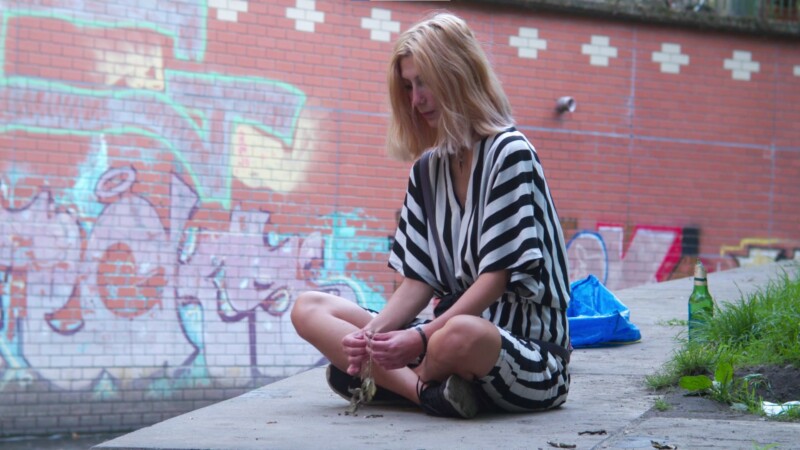
 “Es ist kalt, und es regnet. Wie gewöhnlich habe ich eingekauft, trage schwere Taschen in meiner Hand und laufe nach Hause. Ich schließe die Haustür auf, betrete das Treppenhaus und schaue wie immer zuerst im Briefkasten nach Post. Es gibt nur ein paar Zeitschriften, Werbung und die Internetrechnung. Schnell steige ich die Treppen hoch in die Wohnung, ziehe meine Schuhe aus und gehe in die Küche, wo ich die Einkäufe abstelle. Dann eile ich ins Schlafzimmer, und ohne mich umzuziehen, lege ich mich aufs Bett. Was für ein gutes Gefühl, was für eine Stille und was für ein Frieden! Mein schönes Zuhause …
“Es ist kalt, und es regnet. Wie gewöhnlich habe ich eingekauft, trage schwere Taschen in meiner Hand und laufe nach Hause. Ich schließe die Haustür auf, betrete das Treppenhaus und schaue wie immer zuerst im Briefkasten nach Post. Es gibt nur ein paar Zeitschriften, Werbung und die Internetrechnung. Schnell steige ich die Treppen hoch in die Wohnung, ziehe meine Schuhe aus und gehe in die Küche, wo ich die Einkäufe abstelle. Dann eile ich ins Schlafzimmer, und ohne mich umzuziehen, lege ich mich aufs Bett. Was für ein gutes Gefühl, was für eine Stille und was für ein Frieden! Mein schönes Zuhause …